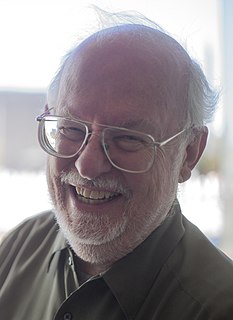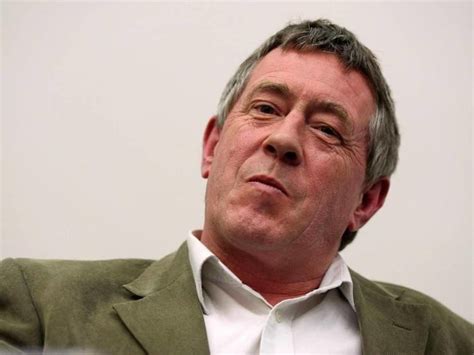A Quote by Alister E. McGrath
When the old poets made some virtue their theme, they were not teaching but adoring.
Related Quotes
I just said let's get some poets on tv. And when they said that sounded unlikely, I made it worse. I said, no man, I want to put a bunch of black poets on stage, too. Some Latino poets who barely speak English and Asian poets who can't believe how discriminated against they are. It was luck nad being in the right place. I wasn't saying nothing somebody else wasn't saying but they wouldn't hear it from them.
Like all twenty-one-year-old poets, I thought I would be dead by thirty, and Sylvia Plath had not set a helpful example. For a while there, you were made to feel that, if a poet and female,
you could not really be serious about it unless you'd made at least one suicide attempt. So I felt I was running out of time.
I think that poets can say, "What we want is for everybody on earth to wake up free from fear and with access to medicine and clean water and education." But I don't think poets have any special insight on how to get there. And the 20th century is a pretty good record of that because so many of the great poets were Stalinists: Vallejo, Neruda, Eluard, Aragon, etc. They wrote their odes to Lenin and Stalin. They glorified some of the most violent and grotesque dictatorships of the 20th century. And a lot of the ones who were not Stalinists were fascists or fascist sympathizers.
Nearly all men and women are poetical, to some extent, but very few can be called poets. There are great poets, small poets, and men and women who make verses. But all are not poets, nor even good versifiers. Poetasters are plentiful, but real poets are rare. Education can not make a poet, though it may polish and develop one.
I have just been to a city in the West, a city full of poets, a city they have made safe for poets. The whole city is so lovely that you do not have to write it up to make it poetry; it is ready-made for you. But, I don't know - the poetry written in that city might not seem like poetry if read outside of the city. It would be like the jokes made when you were drunk; you have to get drunk again to appreciate them.
He [the writer] must, teach himself that the basest of all things is to be afraid; and, teaching himself that, forget it forever, leaving no room in his workshop for anything but the old verities and truths of the heart, the old universal truths lacking which any story is ephemeral and doomed - love and honor and pity and compassion and sacrifice. See Poets & Writers
I know that sounds so circular, but for you, what you were made to do, is different than what I was made to do. But instead of spending all of our time having Bible studies about what we were made to do, go do stuff and you'll figure out what you were made to do, because you'll be great at some things and you'll be terrible at others.
Oh, Black known and unknown poets, how often have your auctioned pains sustained us? Who will compute the lonely nights made less lonely by your songs, or by the empty pots made less tragic by your tales? If we were a people much given to revealing secrets, we might raise monuments and sacrifice to the memories of our poets, but slavery cured us of that weakness.
All children in the '50s were taught manners, they were taught to say please and thank you, they were taught not to be rude. And I'm seeing some problems today where somebody's losing a job because they made fun of a fat lady that couldn't fit in the elevator. I mean that was the sort of thing that, when I was eight years old, my mother made it very clear to me that that was not okay to say that kind of stuff.
I started moving away from poets like Wallace Stevens and Hart Crane and started reading poets like, again, Karl Shapiro, Howard Nemerov, Philip Larkin, and the British poets who were imported through that important anthology put together by Alvarez - and those would include Thom Gunn and Ted Hughes. And I think these poets gave me assurance that there were other ways to write besides the rather involuted style of high modernism whose high priests were Pound, Eliot and Stevens, and Crane perhaps.






































